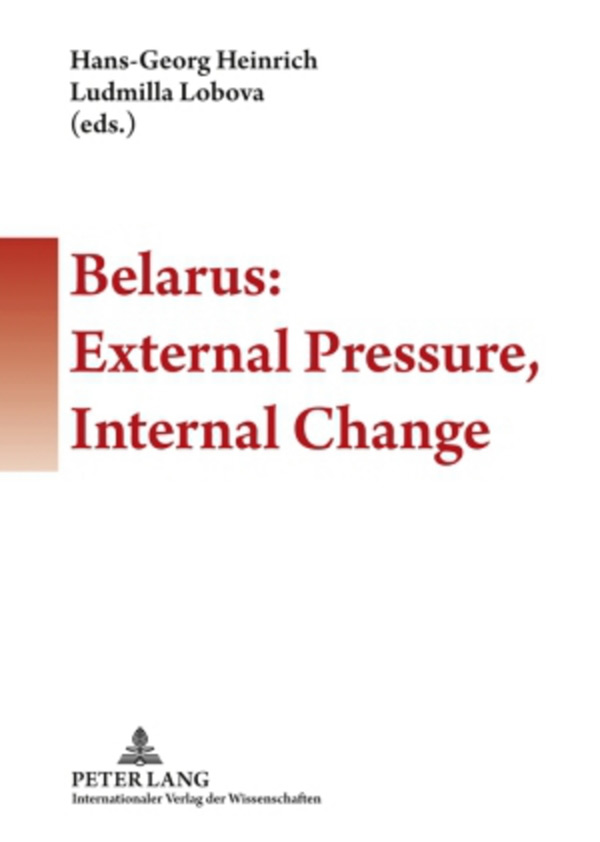Frankfurt am Main, Berlin, Bern, Bruxelles, New York, Oxford, Wien, 2009. 394 pp, 1 fig., num tables, 1 graph
ISBN 978-3-631-59301-1
Hardcover for 69.20 € (*)
Peter Lang Publishing
This volume is a synopsis of various perspectives as well as a trans-boundary and interdisciplinary analysis of the Belarusian model. It is the result of a dialogue among authors who, for various reasons, take a supportive or critical approach towards the present regime. Their views are supplemented by contributions written by authors from neighboring countries. The findings support the thesis that Belarusian society, economy and the political system have begun to adapt to the new challenges the country faces. This study marks an important step forward in the analysis of the intractable Belarusian model and helps to identify its unique and ephemeral features.
Contents:
• Vladimir N. Shimov:
Program-Target Approach to Transforming an Economy: Experience of Belarus (1991-2007).
• Leonid Zaiko: Belarus Today:
Two Trajectories of One Country.
• Igor Katibmkov:
Economic Reforms in Belarus.
• Yaroslav Romanchuk:
The Belarusian Republic: Genesis, Results and Perspectives of the Neo-Planned Economy.
• Sergey Musienko:
Belarus and Europe: Their Elites and Their View of Political Responsibility.
• Michail Marinic:
The Economy of Belarus: From the Energy Crisis Towards Reforms and Cooperation With Europe.
• Svetlana Zavadskaia:
Belarusian Mass Media. The Independence Period (1994-2007).
• Anna Zadora:
The Belarusian Elite: Formation, Conduct and Developmental Dynamics. A Socio-Historical Perspective.
• Andrei Vardamatski:
Freedom An Axiological Agent of Change in Belarus.
• Žygimantas Vaiciunas / Justinas Dementavicius:
Scenarios of the Transformation of the Belarus Regime.
• Rafat Sadowski:
Belarus Between the European Union and Russia: The Polish Perspective.
• Michael Delyagin:
New Belarus for New Russia1 Past, Present, Future.
• Peter Havlik:
Belarus Between Russia and the European Union: Some Reflections on the Belarusian ‘Economic Miracle’ and Future Prospects.
• Stephan Bansitz:
The Belarusian Banking System.
• Martin Rossmann:
Elections and Political Pluralism in Belarus.
• Yakov E. Kenigsberg:
The Consequences of Chernobyl.
The Editors:
• Hans-Georg Heinrich is Professor emeritus at the Department of Political Science at the University of Vienna (Austria), and Vice President of the International Center for Advanced and Comparative EU-Russia/NIS Research (ICEUR-Vienna). He has authored and edited several books on post-Soviet politics and served in field presences of International organizations in various transition countries.
• Ludmilla Lobova is an ethnologist and political scientist with a track record in post-Soviet research. She is Scientific Director of ICEUR-Vienna.
(*) Unsere Preise verstehen sich zzgl. Versandspesen sowie inkl. Mehrwertsteuer. Preisänderungen bleiben vorbehalten.
Die Auslieferung erfolgt durch die Peter Lang AG, Bern/Schweiz
